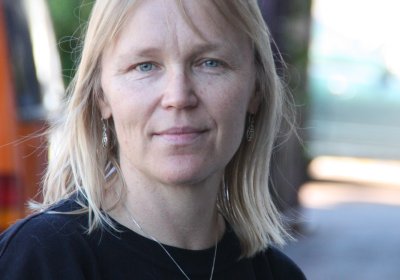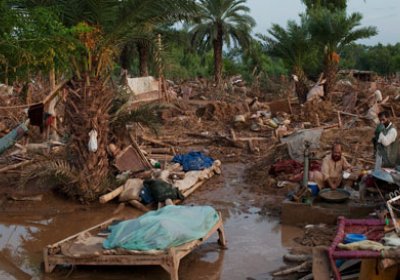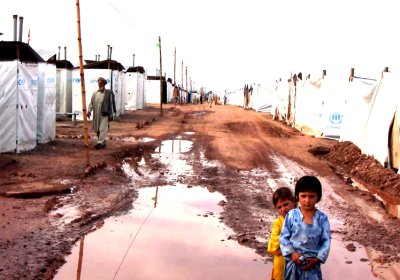BRISBANE — Several hundred farmers from the Darling Downs and environmentalists rallied outside State Parliament on August 4 to protest the expansion of the coal and coal seam gas industries in rural Queensland. The rally was sponsored by Friends of the Earth, Save Our Darling Downs, Community Climate Network Queensland, Friends of Felton and the Queensland Conservation Council.
Environment
In Australia, the question of environmental protection has increasingly been linked to the need to reduce or contain the nation’s population level size. This is often tied to the argument that the high level of consumption in First World countries is unsustainable.
On August 12, candidates from the Greens, Socialist Alliance (SA) and newly formed First Nations Political Party (FNPP) spoke to a group of 50 people at La Tropicana cafe in Fremantle.
The forum was organised by SA to highlight environmental and social policies ignored by the major parties in the federal election campaign.
The event was chaired by Fremantle councillor and Western Australian SA co-convenor Sam Wainwright
Kate Davis, Greens candidate for Fremantle, said: “The Greens have a renewable energy target of 100% by 2030.
The article is abridged from an August 11 Palestinian Centre for Human Rights report.
* * *
The signs which dot the beach along the Gaza City waterfront read: "This beach is polluted.” Yet they serve only as obstacles for children running to the sea, rather than warnings of the serious health risks.
One need only stroll north along the beach for a couple hundred metres to see raw sewage being pumped directly into the Mediterranean Sea from one of the 16 discharge sites along the coast.
Yet thousands of people fill Gaza's beaches.
By August 12, more than 20 million people had been affected by the floods in Pakistan. Waters remained at dangerous levels in several parts of the country, with more torrential rains forecast by the weather department.
This has been one of the most devastating floods in world history. The UN has once again appealed for donations for Pakistan. But the international response has been slow.
On July 29, our Labour Relief Committee team found Pir Sabaq, Khyber-Pakhtoonkhwa province, with a population of more than 34,000, completely destroyed by the flood.
A tent city of more than 1000 tents has been established but most of the people are still forced to live in partially destroyed homes. This could lead to a major building collapsing at any time, with further loss of lives.
In addition to losing their homes, most people have found their household items have been swept away. They have lost their cattle and goats as well. People are without anything to eat, drink or wear.
On July 28, the UN General Assembly passed a Bolivian resolution to make water and sanitation a human right. No country voted against the resolution, but 41 abstained. The following text is abridged from the speech to the General Assembly motivating the resolution by Pablo Solon, Bolivia’s ambassador to the UN.
* * *
During the last three decades, Afghan people have had to leave their homeland due to civil war and foreign invasions. They began to live in camps set up for them near Peshawar.
During the recent floods in the province of Khyber-Pakhtoonkhwa, the refugee camps in Charsada and Nowsherhra have been completely washed away. The Azakhel refugee camp that housed more than 3000 people has been annihilated by the floods.
Forty-one countries abstained in the July 28 UN General Assembly vote on Bolivia’s resolution to recognise access to water and sanitation as basic human rights.
Rather than honestly vote “no”, they abstained to avoid being labelled as opponents of access to water, but many made statements that revealed their hostility to the very idea of recognising water as a human right.
Australia “had reservations about declaring new human rights in a General Assembly resolution”.
In Russia, a seven-week-long heatwave has caused giant firestorms to break out across more than 114,000 hectares of the country. At least 48 people have died and more than 400 new fires broke out on August 4 alone, the Kyiv Post said that day.
Russian President Dmitri Medvedev said on July 30 that “practically everything is burning” in 14 regions of the country, Time said on August 2.
In the past, Medvedev has not seemed too concerned about climate change. At last year’s Copenhagen climate conference he bluntly announced that Russia would increase its emissions.
Conservation groups from Tasmania, Victoria, Western Australia, New South Wales, Canberra and Queensland took part in local actions on August 5 to highlight the threats to biodiversity that burning native forests for electricity will create.
The Socialist Alliance proposals for the federal election, detailed at www.socialist-alliance.org, won’t come cheap. They include lifting welfare payments above the poverty line, ending the 200,000 public housing waiting list, achieving 100% renewable energy by 2020 through a plan of public investment, boosted public transport including inter-city high-speed rail, and closing the gap in Indigenous health, education and housing.
- Previous page
- Page 281
- Next page











